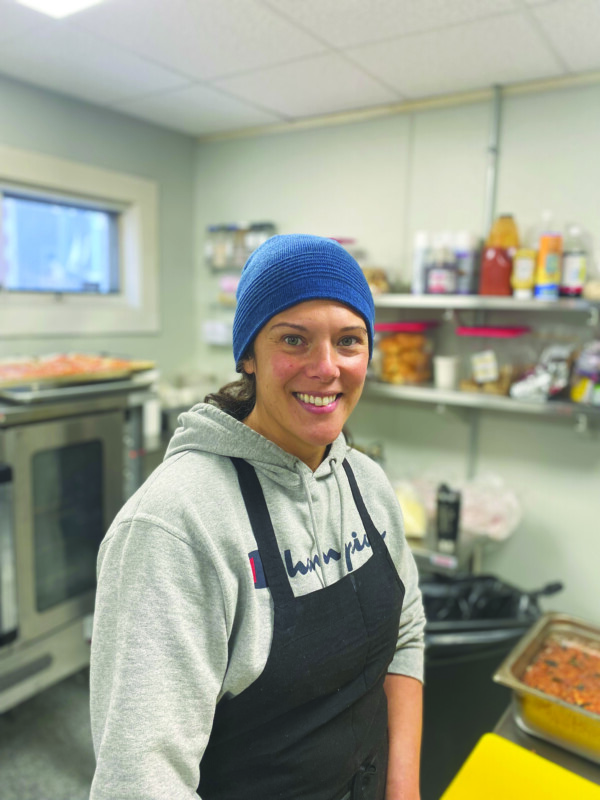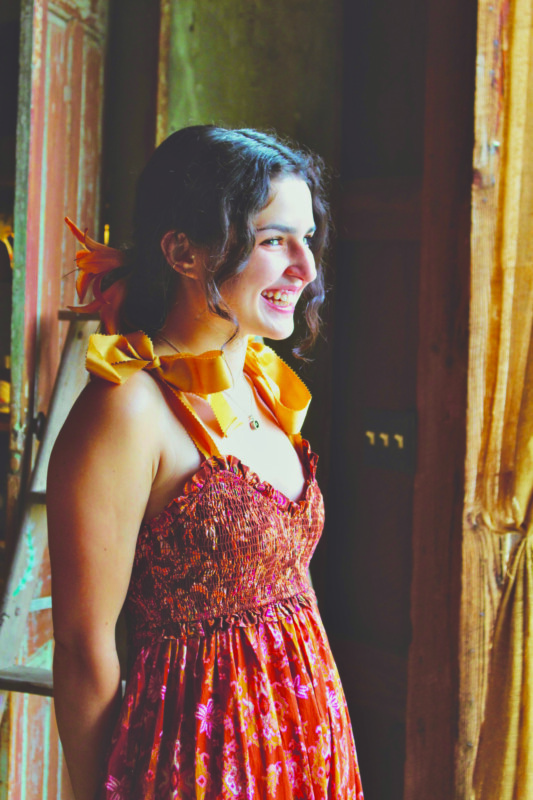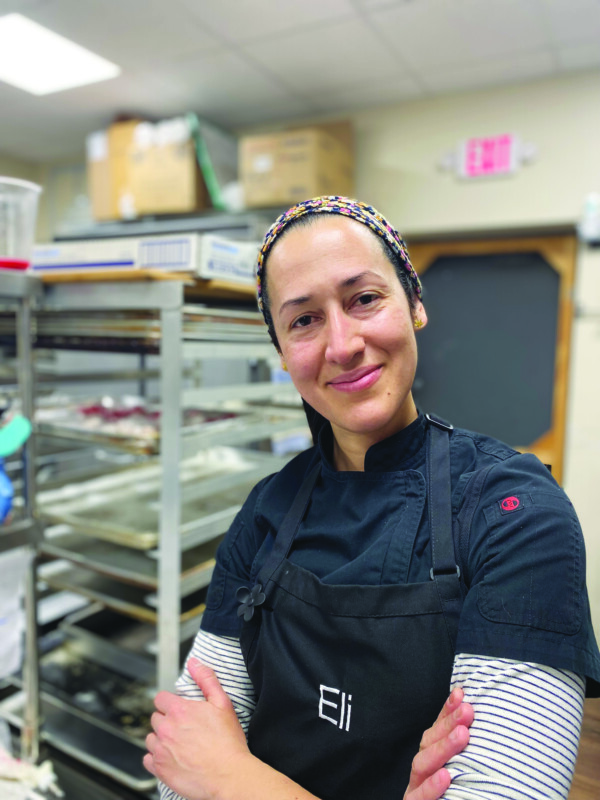See ‘Currents’ at Pillar
Fallon Rae is the co-founder and owner of Pillar Gallery + Projects (205 N. State St., Concord). The gallery is open on Fridays from 4 to 7 p.m. and by appointment. The name was inspired by a hope to be a pillar in the community, and by the Pillars of Creation in the Eagle Nebula, which is only around 7,000 light-years from New Hampshire. The exhibition “Currents” will be on display until Wednesday, April 2, according to the Pillar website. Visit pillargalleryprojects.com or their socials @pillar_galleryprojects.
What was the inspiration behind starting Pillar Gallery?
Pillar Gallery has been… in the works for a few years now before it came to full fruition. The other founder [Mike Howat] and I, when we first started … we actually started at Kimball Jenkins in Concord, New Hampshire. In 2021 and 2022 we started the salon series. It was the biggest open call in New Hampshire. … Then from there it became an opportunity to have a set space so we weren’t having to use other venues…. We really wanted to bring that New York City avant-garde kind of style to the area.
Could you describe the ‘Currents’ exhibition?
This exhibition has four artists in it: Hannah Perrine Mode, Elizabeth Nelson, Jackie Brown and Mary Mead. We wanted to exemplify how climate change is affecting all different parts of the world, so each artist actually has pieces from different regions of the ocean. Mary Mead exemplifies with trash in the Bahamas. Then we have Liz Nelson, who has some pieces from her artist residency in Iceland. Hannah Mode actually has a melting ice core with some of the water from a glacier in Alaska to pair along with her Alaskan glacial made cyanotypes. Then we have Jackie Brown, who’s representing more of the Maine and local side of things, the local fishery and all the debris that comes from that industry as well. It’s really impactful to see such different voices come together in a way and have a really good resonating theme. One of our artists said she’s been a part of a few shows named ‘Currents’ and this is the most unique and different one…. Five percent of the sales from this show are going to the Blue Ocean Society.
Do you all put on any other types of events?
We also do drink-and-draws…. We’re going to be starting it on the third Friday, every other month, we’re going to be doing a drink and draw, so the next one will be March 21.
Is there a particular style or medium that Pillars is really drawn toward?
We’re really drawn toward sculpture or multimedia or artists. One of the artists in the show right now, Mary Mead, she’s kind of known for being a printmaker but she actually started out as a sculptor and over time printmaking is just one of the things that she ended up having a niche at … One of our favorite things to do is go into the studio itself and do studio visits and actually pick out the work and see it. One of our artists for the show, Liz, ended up driving down pieces. We just saw how the light looked, how they paired together, and I think it’s just about that greater conversation about the arts. … for the most part we prefer a unique voice…
Are there any sorts of exhibits or events you’d like to see at Pillar that you all haven’t done yet?
We are connected to a commercial kitchen space called State Street Kitchen. … I’d really love to keep expanding our collaboration with them more, having date nights where people can either be making art and then make food, or something along those lines that just brings more and more people together from different places. … That’s probably one of our favorite parts of being curators, is to be a good safe space for people to feel like they can be vulnerable and show off their art…
Is there anything else about the gallery that you’d like to mention?
I just did a great presentation at Bow High School letting kids know a little bit about curating. I’m also writing a book on curation because it is such a unique and niche subject matter. —Zachary Lewis





